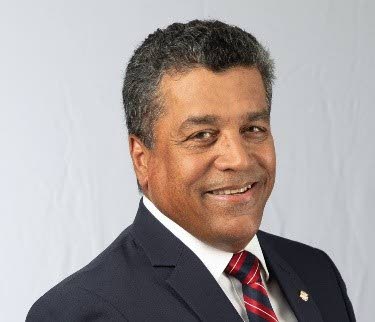Business chambers: Removal of subsidy could be major shock

Minister of Energy and Energy Industries Stuart Young said he and Finance Minister Colm Imbert have been tasked to examine the options available to the country regarding fuel liberalisation and make recommendations to Cabinet.
Speaking during the post-Cabinet media briefing on Thursday, Young said, “The price of fuel is very volatile right now. It was predicted to go up to $150 a barrel but went down to $112 in 48 hours.
"The Finance Ministry and the Energy and Energy Industries Ministry have been tasked to look at the various options and make recommendations to Cabinet. There is legislation in place for fuel liberalisation. The government will work out what burden the population will carry, but no decision has been made as yet.”
Many business organisations say they are worried about the inflationary effect that will occur in TT if pump fuel prices increase as intimated by the Prime Minister on Tuesday.
TT Chamber of Industry and Commerce CEO Ian De Souza said it acknowledges that the government may have to amend the structure of the subsidies to avoid placing an undue burden on its financial resources.
“At the same time, even with the limitations in output, the government will also be the beneficiary of a significant increase in inflows due to the increases in the prices of oil, gas and other petrochemical products.
"This chamber, therefore, expects that the government will weigh the income and costs in ensuring that whatever adjustments to the subsidies become necessary, these would be minimised in the interest of lowering the financial impact on the citizenry of the country.”
The chamber also said the worldwide increases in the cost of energy would have an adverse impact on the cost of production of goods and services, and it was concerned about the impact on TT’s citizens of unavoidable inflationary pressure.
Greater San Fernando Area Chamber of Commerce president Kiran Singh said the war between Russia and Ukraine would result in inflation of all goods and services across the board. He said the increase in the price of gas could unfortunately mean an increase in the cost of transport not only for commuters but also for businessmen trying to transport goods from point A to point B.
“We thought we were coming out of the pandemic, but we can’t seem to get a break. The PM sent a wake-up call that we will see inflation, but an increase in the cost of goods and services without a corresponding increase in wages and salaries means that the country could be in for an economic shock that we are not prepared for. I’m looking forward to the Finance Minister’s mid-year budget review to see what he announces.”
TT Supermarket Association head Rajiv Diptee said owing to the ongoing war between Russia and Ukraine, it was inevitable that fuel prices would increase. He said there needed to be a focus on solutions.
“Even before the war began, things were getting more expensive, including the cost of containers. I think what is relevant in the public interest is the ability to concentrate on the efforts to increase our food security, both as a nation and in the Caribbean region, because certainly if our neighbours within the Caribbean could feed themselves, we can all help to feed each other. So I think the effort must be one that concentrates on increasing our food security.”
Caribbean Advocacy CEO Gabriel Faria said the Finance Minister had previously indicated that gas would be moved to market-based pricing, where consumers would have to pay for fuel based on the price of oil, but that had not been implemented.
Faria said the price of fuel had significantly increased worldwide and it would be up to the government to decide what to do about the situation.


Comments
"Business chambers: Removal of subsidy could be major shock"